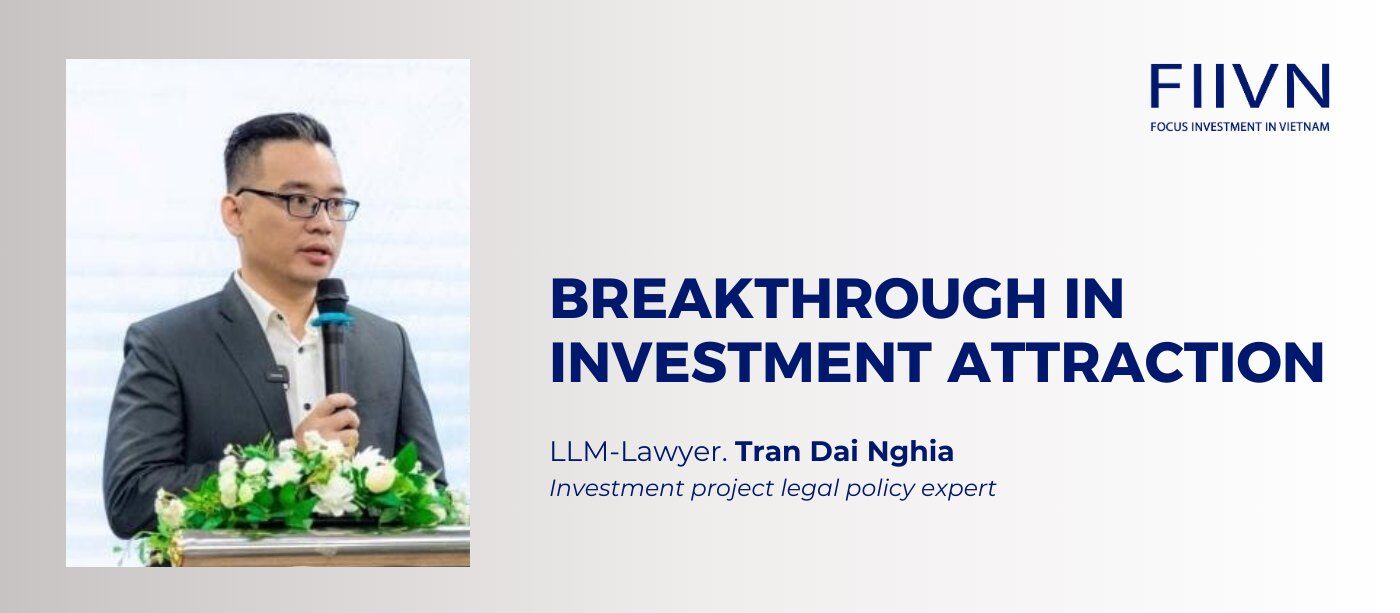
The recent approval by the National Assembly of amended laws such as the Planning Law, the Investment Law, the Investment under the public-private partnership model Law, and the Bidding Law has opened a new and promising chapter.
- Many projects involving large and strategic investors are expected to be highly beneficial in the near future. This optimism comes after the National Assembly approved amendments to several laws, including the Planning Law, the Investment Law, the Law on Investment in Public-Private Partnerships, and the Bidding Law. Could you please share your thoughts on the specific advantages of these new regulations?
In the past, investors looking to invest in Vietnam faced a lengthy and complicated process that involved numerous procedures. These included obtaining Investment Certificates, approving Detailed Planning, securing Fire Prevention and Fighting approvals, appraising Feasibility Study Reports, and acquiring Environmental and Construction Licenses, among others. This entire process could take anywhere from 9 months to 12 months, and in some cases, it could extend to several years. Such delays have made Vietnam's investment environment less appealing, particularly in sectors that require continuous technological advancements. When legal procedures are prolonged, it hinders investors from effectively implementing their projects. Compared to neighboring China, which has simplified procedures, investors in Vietnam face a longer timeline; it takes a minimum of 45 days to begin construction after submitting an investment license application. This clearly puts Vietnam at a disadvantage. However, under the new law, businesses that invest in priority areas can receive a unique special investment license within just 15 days after submitting a complete application. This allows them to start construction immediately, with minimal time needed for procedural reviews. All previous document pre-checks will now shift to post-checks, meaning investors only need to commit to adhering to Vietnamese law throughout the project implementation process.
- In your opinion, will applying the "green channel" in investment help Vietnam attract high-tech projects more effectively, and how can we balance between facilitating investors and ensuring environmental risks or outdated technology?
The new regulations regarding special investment procedures allow for expedited processing of projects in high technology, semiconductors, new materials, and similar fields, regardless of the investor's origin. Experience has shown that the construction process involves multiple stages, including the time required for site clearance and the development of technical infrastructure. Companies can effectively use this time to proactively review other procedures, which can significantly reduce the overall time needed for project implementation.
During the drafting of the law, concerns were raised about the potential environmental risks of allowing the "green channel" for investments. There were fears that investors might exploit this provision to introduce outdated technologies that do not align with current standards. To address these concerns, the new law specifies that the simplified procedures will only apply within designated industrial parks, which have systematic planning and sufficient infrastructure. This ensures that any negative impact on the community is minimized.
Investors are required to comply with all provisions of Vietnamese law. When applying for permission under the "green channel," they must have their consultants evaluate the effectiveness and feasibility of their project model in Vietnam. Since this is a significant right, investment decisions need careful consideration. Although the official regulatory time frame in Vietnam is 15 days, it is common for investors to have conducted project surveys long before submitting their applications for expedited procedures.
- In your opinion, how will the transfer of investment approval authority to localities affect the ability to attract investment capital in high-tech industries, and how can localities take advantage of this opportunity most effectively?
A highlight of this amendment is the transfer of the right to approve investment policies to the provincial People's Committee, instead of the Prime Minister as before. This allows localities to be more proactive in attracting and implementing projects.
In addition, new policies target key areas such as biotechnology, new materials, semiconductors, etc., aiming to shape Vietnam into a regional technology center. Although there are still many challenges in synchronizing implementation among management agencies, this is a breakthrough step to enhance Vietnam's investment attractiveness.
Thus, the adoption of special investment regulations demonstrates Vietnam's determination to improve the investment environment. With the support of new policies, Vietnam is opening the door to welcome key projects, creating momentum for development in the era of technology and international integration.
In addition, for new fields, there are many technologies in Vietnam's technical regulations and standards that do not have a testing and analysis framework. Therefore, if a business has successfully deployed in other advanced countries in the world, it is completely possible to apply them in Vietnam to save time and quickly put them into operation.
 LLM-Lawyer. Tran Dai Nghia Investment project legal policy expert
LLM-Lawyer. Tran Dai Nghia Investment project legal policy expert
